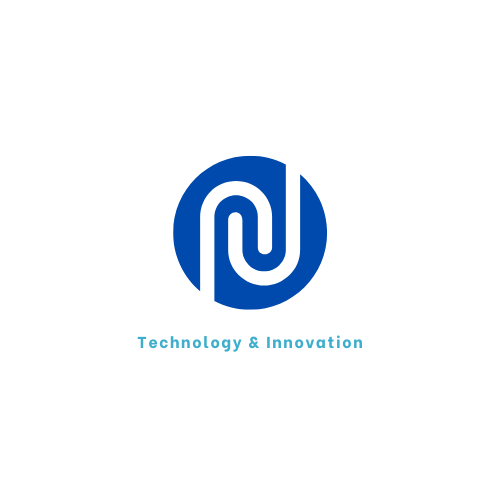The rapid growth of artificial intelligence (AI) has sparked an important debate: Will AI eventually replace human coders? With AI-powered tools writing code, automating debugging, and even suggesting design patterns, many aspiring developers are wondering whether coding is still a secure career choice. For learners considering options like a CMU coding bootcamp, understanding this shift is essential.
The truth is, AI is transforming programming, but it is not replacing human creativity and problem-solving. Instead, it’s redefining the role of coders, pushing them toward higher-value tasks. Let’s explore how AI and human programmers will coexist in the future and what skills developers need to thrive.
How AI is Entering the Coding Space
AI has made significant progress in automating parts of the development process. Tools like GitHub Copilot, ChatGPT, and DeepCode are helping developers work faster and more efficiently.
Common AI Applications in Coding:
- Code generation: AI can write snippets of code in multiple languages.
- Debugging support: AI detects bugs and offers solutions.
- Code optimization: AI refactors code for performance improvements.
- Learning assistance: AI helps beginners understand syntax and logic.
While these capabilities are powerful, they are not flawless. AI often lacks deep contextual understanding and struggles with complex problem-solving.
Why Human Coders Still Matter
Despite AI’s advancements, human programmers remain indispensable.
Key Strengths of Human Coders:
- Creativity: Humans can conceptualize unique solutions and build innovative software.
- Critical thinking: Developers make design decisions that require understanding business goals.
- Ethical judgment: Coders can assess whether software applications align with societal values.
- Collaboration: Humans work with teams, clients, and stakeholders to define requirements.
AI can accelerate tasks but cannot replace the broader skillset programmers bring to the table.
Will AI Replace Programmers?
The short answer is no—at least not in the foreseeable future. Instead of eliminating jobs, AI is shifting the type of work coders do.
Coding Work AI Can Automate:
- Routine code generation
- Syntax corrections
- Auto-complete functions
- Repetitive testing
Coding Work AI Cannot Replace:
- Designing complex architectures
- Understanding user needs
- Managing large-scale projects
- Ensuring ethical and secure software development
Programmers who learn to collaborate with AI will become more productive and valuable in the job market.
The Future Role of Programmers in the Age of AI
In the coming years, human coders won’t disappear they’ll adapt. Instead of spending hours writing repetitive code, they’ll focus on high-level responsibilities.
Evolving Roles for Human Coders:
- AI trainers: Teaching AI models to improve code accuracy.
- Problem solvers: Tackling complex challenges that require human insight.
- Project leaders: Coordinating teams, clients, and technical goals.
- Cybersecurity experts: Designing secure systems to counter AI-driven cyber threats.
- Innovators: Creating applications AI cannot conceptualize on its own.
AI is a tool, not a replacement. The most successful programmers will learn to use AI as an ally rather than seeing it as competition.
Skills Programmers Should Learn to Stay Relevant
To thrive in the AI-driven future, coders need to upgrade their skills continuously.
Technical Skills:
- AI and Machine Learning Basics: Understanding how AI models work.
- Cloud Computing: AWS, Azure, and Google Cloud expertise.
- Cybersecurity Knowledge: Protecting applications in an AI-powered world.
- Full-Stack Development: Combining front-end and back-end skills.
- Data Science Skills: Working with large datasets and AI-driven analytics.
Soft Skills:
- Problem-solving mindset
- Collaboration and teamwork
- Adaptability to new tools
- Critical thinking and ethical awareness
By combining technical expertise with adaptability, human coders will maintain a crucial edge.
Industries Where Human Coders Will Remain Crucial
Even with AI, industries will continue to rely on human coders for sensitive, complex, or creative tasks.
- Healthcare: Building patient-centered, secure medical systems.
- Finance: Developing fraud-detection systems that require constant oversight.
- Education: Designing personalized learning platforms.
- Gaming: Creating immersive, creative worlds AI cannot fully design.
- Government & Defense: Implementing secure, ethical, and policy-compliant solutions.
Benefits of AI for Human Coders
AI isn’t just competition it’s a powerful partner. Developers who embrace AI will enjoy many benefits:
- Increased productivity: Faster coding and debugging.
- Reduced errors: AI helps spot mistakes quickly.
- Learning aid: AI supports beginners with explanations and suggestions.
- Focus on creativity: Less repetitive work means more time for innovation.
- Collaboration: AI tools act as virtual pair-programmers.
Challenges and Concerns About AI in Coding
Of course, AI integration isn’t without challenges.
Key Concerns:
- Job security fears: Some entry-level roles may shrink.
- Overreliance on AI: Developers risk losing foundational skills.
- Bias in AI systems: AI may inherit biases from training data.
- Ethical concerns: AI-generated code could be misused.
The solution lies in balance: coders should learn to leverage AI while maintaining core skills.
How Beginners Should Approach Coding in 2025
If you’re just starting your coding journey, don’t let AI discourage you. Instead, use it as an accelerator for learning.
Steps for Beginners:
- Start with basics: Learn Python, JavaScript, or Java.
- Build projects: Practice with real-world applications.
- Use AI wisely: Treat tools like Copilot as helpers, not crutches.
- Join coding communities: Network and learn from peers.
- Consider bootcamps: Short, intensive programs offer job-ready skills.
By approaching coding strategically, even beginners can thrive in an AI-powered world.
Conclusion
The future of programming lies not in a battle between AI and human coders but in a partnership. AI will automate routine coding tasks, but human programmers will remain vital for creativity, ethics, and complex problem-solving. For those aspiring to join this evolving industry, learning how to code is still one of the most valuable investments you can make.
If you’re looking to gain in-demand skills and future-proof your career, enrolling in a Software developer bootcamp can give you the right balance of technical expertise and adaptability needed in today’s AI-driven tech landscape.


Leave a Reply